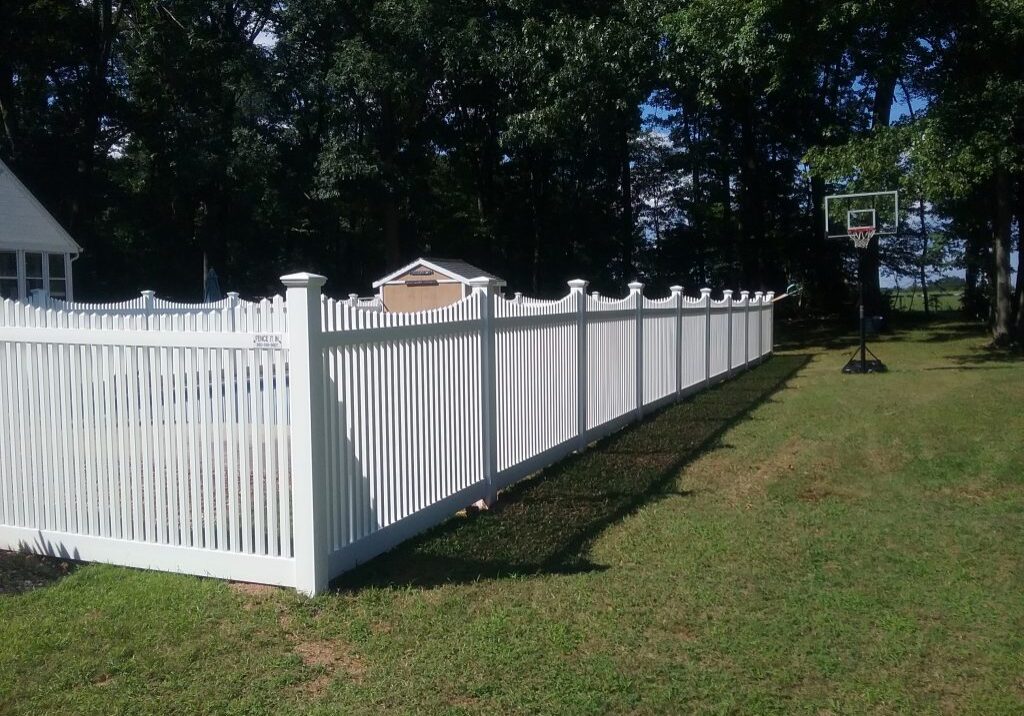All Categories
Featured
If you're thinking about mounting a fencing around your building, understanding the authorization demands in your area is crucial. In this overview, we'll break down the various licenses you might need to install a fence and how to guarantee your project stays compliant with regional regulations.
Why Are Permits Essential for Fence Installment? Authorizations are called for to ensure that the fencing you construct follow neighborhood building codes, zoning laws, and safety and security criteria. These authorizations are in place to protect your residential property, the buildings around you, and the environment. They make sure that the fencing will not obstruct energies, website traffic circulation, or create risks for pedestrians. In addition, they help keep the aesthetic and structural stability of your area.
![]()
Kinds of Permits You May Demand. Building Authorization. A structure license is the most typical requirement for mounting a fence. This permit ensures that the structure you develop adhere to neighborhood safety and security codes and laws. You might need to get a building authorization if your fencing goes beyond a specific height (usually around 6 feet) The regional authorities will typically evaluate your plans to ensure that your fence is structurally audio and risk-free.
Zoning License. Zoning laws regulate land use in your location, and they often regulate where fencings can be set up, in addition to just how tall they can be. A zoning permit guarantees that your fencing follows these policies. Your fencing might need to be set back a particular range from sidewalks or property lines. Zoning regulations can vary by neighborhood, so it's essential to inspect the specific rules that use to your place.
Homeowners Association (HOA) Approval. If your property is component of a homeowners association, you might need authorization prior to mounting a fence. HOAs typically have stringent regulations regarding the kind, design, and products made use of for fencings to maintain a consistent appearance throughout the area.
Specialty Permits. In many cases, you might require specialty permits based on the place of your residential or commercial property or the nature of your fence. If your residential property is in a flood zone, you might require additional permits to ensure that your fence does not block drain or water circulation. If you prepare to build a fence near an ecologically protected location, you may require a special license to abide with ecological policies.
![]()
Energy Easements and Utility Business Approvals. Before installing a fence, you must examine if your property has an easement. Developing a fence within an easement might interfere with energy maintenance or damage underground lines.
Exactly How to Determine Which Permits You Need. Get In Touch With Local Authorities. The very first step in identifying the authorizations needed is to contact your regional structure division or zoning workplace. They can offer specific information regarding what authorizations are required for your area. Numerous cities have on-line resources or sites where you can inspect the needs and even make an application for a permit online.
Consult an Expert Fence Professional. A regional fencing contractor is typically acquainted with the license procedure and neighborhood policies. They can aid you browse the needs and ensure that your task is compliant. Numerous service providers likewise take care of the authorization application procedure on your part, saving you effort and time.
Review Your Neighborhood's HOA Guidelines. Make certain to evaluate their guidelines prior to applying for any type of authorizations if you live in a community controlled by an HOA. The HOA may call for details styles, materials, or height constraints for fences within the area. Submit your strategies to them for authorization before continuing.
![]()
Effects of Not Getting a Permit. Setting up a fencing without the called for licenses can cause severe effects. You may face fines, be gotten to get rid of the fence, or be needed to redo the setup to satisfy code requirements. Furthermore, marketing your home could be complicated if the fencing doesn't satisfy regional laws. Potential purchasers may be reluctant to acquire a building with an unpermitted fencing, particularly if it's in violation of zoning legislations.
Conclusion. Before setting up a fencing on your residential or commercial property, make certain you recognize the neighborhood regulations and get any kind of needed authorizations. Building authorizations, zoning permits, HOA approvals, and specialized allows all play a crucial duty in making sure that your fence is secure, lawful, and certified.
Why Are Permits Essential for Fence Installment? Authorizations are called for to ensure that the fencing you construct follow neighborhood building codes, zoning laws, and safety and security criteria. These authorizations are in place to protect your residential property, the buildings around you, and the environment. They make sure that the fencing will not obstruct energies, website traffic circulation, or create risks for pedestrians. In addition, they help keep the aesthetic and structural stability of your area.

Kinds of Permits You May Demand. Building Authorization. A structure license is the most typical requirement for mounting a fence. This permit ensures that the structure you develop adhere to neighborhood safety and security codes and laws. You might need to get a building authorization if your fencing goes beyond a specific height (usually around 6 feet) The regional authorities will typically evaluate your plans to ensure that your fence is structurally audio and risk-free.
Zoning License. Zoning laws regulate land use in your location, and they often regulate where fencings can be set up, in addition to just how tall they can be. A zoning permit guarantees that your fencing follows these policies. Your fencing might need to be set back a particular range from sidewalks or property lines. Zoning regulations can vary by neighborhood, so it's essential to inspect the specific rules that use to your place.
Homeowners Association (HOA) Approval. If your property is component of a homeowners association, you might need authorization prior to mounting a fence. HOAs typically have stringent regulations regarding the kind, design, and products made use of for fencings to maintain a consistent appearance throughout the area.
Specialty Permits. In many cases, you might require specialty permits based on the place of your residential or commercial property or the nature of your fence. If your residential property is in a flood zone, you might require additional permits to ensure that your fence does not block drain or water circulation. If you prepare to build a fence near an ecologically protected location, you may require a special license to abide with ecological policies.

Energy Easements and Utility Business Approvals. Before installing a fence, you must examine if your property has an easement. Developing a fence within an easement might interfere with energy maintenance or damage underground lines.
Exactly How to Determine Which Permits You Need. Get In Touch With Local Authorities. The very first step in identifying the authorizations needed is to contact your regional structure division or zoning workplace. They can offer specific information regarding what authorizations are required for your area. Numerous cities have on-line resources or sites where you can inspect the needs and even make an application for a permit online.
Consult an Expert Fence Professional. A regional fencing contractor is typically acquainted with the license procedure and neighborhood policies. They can aid you browse the needs and ensure that your task is compliant. Numerous service providers likewise take care of the authorization application procedure on your part, saving you effort and time.
Review Your Neighborhood's HOA Guidelines. Make certain to evaluate their guidelines prior to applying for any type of authorizations if you live in a community controlled by an HOA. The HOA may call for details styles, materials, or height constraints for fences within the area. Submit your strategies to them for authorization before continuing.

Effects of Not Getting a Permit. Setting up a fencing without the called for licenses can cause severe effects. You may face fines, be gotten to get rid of the fence, or be needed to redo the setup to satisfy code requirements. Furthermore, marketing your home could be complicated if the fencing doesn't satisfy regional laws. Potential purchasers may be reluctant to acquire a building with an unpermitted fencing, particularly if it's in violation of zoning legislations.
Conclusion. Before setting up a fencing on your residential or commercial property, make certain you recognize the neighborhood regulations and get any kind of needed authorizations. Building authorizations, zoning permits, HOA approvals, and specialized allows all play a crucial duty in making sure that your fence is secure, lawful, and certified.
Latest Posts
Learn How to Save Big on Car Maintenance with Montclare Auto Repair’s Exclusive Deals
Published May 26, 25
1 min read
Discover Why Chicago Drivers Select Montclare Auto Repair for Trusted Service and Big Savings
Published May 24, 25
1 min read
Unlock WyHy Federal Credit Union – Top Benefits for Your Financial Success
Published May 23, 25
1 min read
More
Latest Posts
Learn How to Save Big on Car Maintenance with Montclare Auto Repair’s Exclusive Deals
Published May 26, 25
1 min read
Discover Why Chicago Drivers Select Montclare Auto Repair for Trusted Service and Big Savings
Published May 24, 25
1 min read
Unlock WyHy Federal Credit Union – Top Benefits for Your Financial Success
Published May 23, 25
1 min read